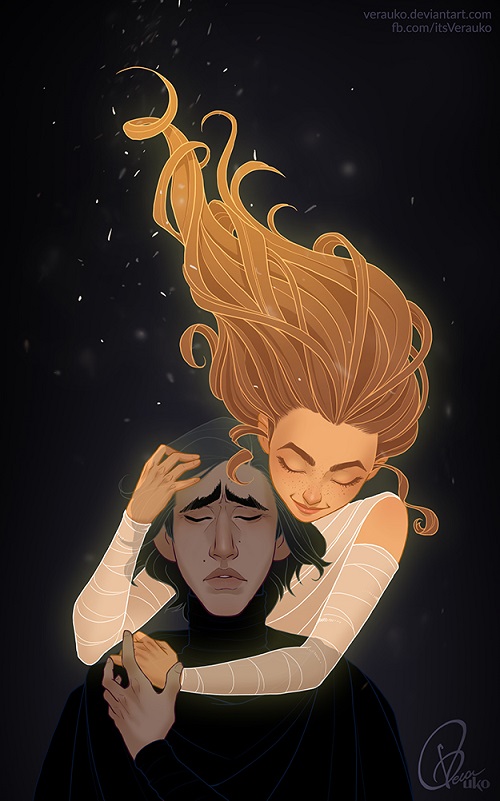
A man sees what he wants to see and disregards the rest. – Paul Simon
Anyone following along with the current state of American politics, the #Brexit, or the European Football championship probably knows what I mean when I say “confirmation bias”. It’s pretty universally understood that any strong adherent to one faction or the next is almost certain to seek out the news and information sources that hold and proclaim their point of view. And many of those who are most heavily involved in one side of an issue wonder how it’s possible for the other side to see things the way they do.
News sources themselves tend towards catering to one side of an issue or another. This is, of course, completely deliberate: those who are consumers of news trend toward viewership of the network whose broadcasts come closest to professing their own point of view. Savvy media outlets tailor their content to the audience that they know is tuning in lest a valuable audience member become displeased with the news of the day and dare to change the channel. With this kind of editorial manipulation going on behind the scenes, the differences in coverage of a single event across several networks can be jarring.
With the proliferation of the internet, the rise of the blogosphere, and the advent of the genre known as “infotainment”, it has in recent years become all the more effortless an undertaking to constrain ourselves to channels that reinforce an already-held position. People like to be right. People like to feel justified in their worldview. People also appreciate community. This is a large part of why we, as people, congregate and tend to self-segregate along political, social, class, and religious lines.
This same human tendency that urges us to seek out like-minded people and agreeable sources of news and information follows us into our consumption of entertainment. Knowing what we do about human nature and the preference for feeling “right” and being agreed with, it’s no surprise that we as fans tend strongly toward associating only with those who share similar thoughts on our favorite entertainment properties. For example: there have been whole communities built online around “shipping” certain characters who are in no way romantically linked in the canon in which they were created. And there are plenty of online communities speculating on other aspects of popular television, film, and book series. People tend to gravitate toward others who share their ideas and support their theories. This is natural, and this is human. But sealing ourselves in an echo chamber of identical speculation can lead to a diminished enjoyment of the very thing that brought the fans together in the first place.
The Star Wars fandom is certainly no stranger to this phenomenon. Even before the ubiquitous internet, fans of the franchise were choosing sides and debating the future. It may seem odd to think about it now, but in the three years that fans were waiting anxiously between The Empire Strikes Back and Return of the Jedi not all of us believed that Darth Vader was actually Luke’s father. Many fans were convinced that Vader had been lying to Luke during their duel on Bespin. They were sure that Obi-Wan wouldn’t have lied about something so pivotal. Vader, being the bad guy, was certainly the one spouting falsehoods. There were just as many shocked gasps in the theater at Yoda’s revelation in Jedi as there had been at Vader’s in Empire. And this wasn’t the only truth of the third film that didn’t sit well with some fans who had already made up their minds as to how they wanted to see the story concluded. It’s rumored that one author of books in the old Expanded Universe was so keen on a Luke/Leia romance from 1977 to 1983 that they never got over the revelation of their siblinghood- and I’m sure they were not alone in that regard.
The chagrin at our own “headcanons” disagreeing with what was later revealed as actual canon followed us out of the theaters and into our homes with the book series we now know as Legends. There are still fans on both sides of what came to be known as the “Jaina Solo Ship Wars” who will gladly stop whatever else they might be doing and argue their side. Never mind that this conflict was resolved in the books years ago, and never mind the fact that the whole episode- and the character of Jaina Solo herself- have now been consigned to “legendary” non-canonical status; the subject of with whom she ought to have wound up romantically linked remains a hot button of contention amongst that contingent of hardcore fans. And there were plenty of folks who ended up on what turned out to be the losing side of that conflict who never picked up another Expanded Universe book afterward- for no other reason than that it was settled not to their liking.

And that “war” was a small one compared to what’s happening currently. It’s common knowledge that fandom culture has changed in recent years. It’s changed a lot. Although fansites such as TheForce.net have existed for as long as in-home internet has been common, the recent growth of internet fan communities on Facebook, Twitter, Instagram, Tumblr, and other social media sites has expanded the depth and breadth of the proverbial echo chamber in unprecedented ways. Even the prequel trilogy, which debuted in the internet age, and which had its own strongly-argued fan theories (Palpatine as a clone, anyone?) hadn’t nearly the kind of online community that Episode VII and beyond have spurred.
The magnitude of the Star Wars fandom online is awesome. With the buildup and reaction to The Force Awakens and the popularity of the Clone Wars and Rebels television series, legacy fansites have seen their popularity expand and new online hubs are popping up at an incredible rate. From fan fiction to fan art to beautifully edited music videos, folks are expressing their love for Star Wars and all it entails in a multitude of interesting and creative ways. And whether you’re looking for children’s games or stories that are very definitely adults-only, this blossoming of online fandom means that you can probably find what you are seeking.
And with this veritable explosion of Star Wars fandom online, it seems as though it’s easier than ever for a fan to find others who see the Galaxy Far, Far Away in the same way and through the same filters as they do. The internet, and every fandom represented therein, are filled with diverse identities and differing ideas. The multitude of different ‘flavors’ of Star Wars fandom are certainly no exception. Each focus, each set of complimentary ideas, each “ship”, has created its space online. And the idea within these communities that everything in the new canon exists to support whatever hypothesis they have formed can be a powerful one.
There is even a small but vocal faction of Star Wars fans who have divorced themselves entirely from the current state of the canon and instead “prefer to stick with Legends” as though that could insulate them from the reality of the reboot. They have, in the interest of keeping to their long-subscribed-to understanding of the universe, chosen to turn their backs on all the storytelling that is yet to come.
Among the fans who have chosen to embrace the new Star Wars canon, there exist divides nearly as vast as those between them and the “Bring Back Legends” crowd. The several factions that have formed around Rey’s parentage are one easily identified example of this. There are arguments to be found online for everything from “her parents are unknown to fans at this point” to “she was sired by the Force the same as Anakin was” to any number of possibilities ranging from the plausible to the extreme. Each faction has plenty of evidence behind their hypothesis, and any one of them could prove to be correct in the long run.
There are also some pretty heated feelings when it comes to whether The Powers That Be have intended a romantic future for heroine Rey and villain Kylo Ren. Many fans see the interaction between the two of them thus far as so brutal, and his treatment of her so vile, that they cannot stomach the idea of the two ever developing a romance. Those fans’ primary argument seems to be that anyone whose first meaningful interaction with a woman includes strapping her down and using the phrase “I can take what I want” should never, ever be allowed to win that woman’s heart. This is a sentiment with which I agree, by the way. But those who feel like these two dynamos of the Force are destined to end up together have some pretty powerful arguments of their own. Most notably, the “Reylo” community, as they have come to be known, have taken their cues from cinema history and drawn plenty of parallels to classic on-screen romances. I don’t like it, but I have to admit that their arguments can be compelling. Whereas those who take umbrage at the idea of a Kylo/Rey pairing find the way he scoops her up and carries her onto his ship to be creepy and off-putting, those who champion the pair as having a romantic future are quick to point out that the “bridal carry” has had very specific connotations in film up to this point and that it’s almost certainly indicative of the characters’ future.

And whatever side of a contentious issue someone falls on, it seems that there is no end of evidence to support their position. In fact, there have been instances of fans on opposite sides of a question who have managed to examine the same lines of dialog and take them to mean entirely opposite things. I will use an example from Claudia Gray’s Bloodline (because I have just read it for the fourth time and it’s freshest in my memory). Minor spoilers ahead.
When, in chapter two, Leia is contemplating leaving the Senate to travel with Han full time he comments: “after three months on the same ship, we’re gonna kill each other.” Certain readers, largely Kylo fans who postulate that an unhappy childhood led- at least in part- to his fall to the dark side, see those words as proof of their theory that Han and Leia’s marriage was violent and their home unhappy. Meanwhile others felt that line along with Leia’s response, “But won’t those three months be fun?” was a return to the kind of Hepburn-and-Tracy banter that was the quintessence of the two throughout the original trilogy, and took it to mean that their favorite characters were just as happy and in love as they ever were.
The same lines of dialog can mean different things to different people. The same points of data lead different people to different conclusions; because they have a different agenda in examining it to begin with. This is confirmation bias at its core.
We see what we want to see. We get from our consumption of fiction what we want to get. And why shouldn’t we? Aren’t we in this whole fandom thing for fun? If we aren’t getting what we want, where’s the fun in that? And isn’t forming community one of the best things about fandom? What’s the problem with forming a community of fans who appreciate, want, enjoy, and defend the same ideas about the franchise as yourself?
Having ideas, forming hypotheses, and taking sides aren’t in and of themselves problematic. Holding a position on an aspect of a beloved entertainment franchise is no more troublesome a pastime than rooting for a favorite sports team (go Germany!). The problem lies in the level of importance that we can sometimes place on those hypotheses. The larger the community, the more time spent in the proverbial echo chamber reinforcing a hypothesis, the stronger those beliefs tend to become. And the problem with belief is that it can easily be confused with fact. Neil DeGrasse Tyson once famously said that “the good thing about science is that it’s true whether or not you believe in it.” And yet there are plenty of people who refute scientific findings every day because those findings disagree with what they believe.
The problem isn’t that we look at the Galaxy Far, Far Away with our theories and preferences for the future already tucked safely in our hearts. The problem is when we let our theories, our postulations, our “headcanons”, and the surety we have gained from exposing ourselves only to other fans who share them become sacred. When what we want to happen, when what we’ve already decided ought to happen, becomes more important than the experience of being entertained, we’ve potentially robbed ourselves of a significant measure of joy.
Those “Bring Back Legends” folks have allowed their distaste for the Disney reboot to keep them from experiencing the future of the franchise they’ve so enjoyed up to this point. If those who are opposed to a Kylo/Rey romance see one beginning to blossom, will that sour the experience of the later films for them? Will those who have convinced themselves that Ben Solo had a miserable childhood be okay with what comes next if it turns out that he didn’t?
We as Star Wars fans have a lot to look forward to. And always in motion, the future is. We have no way to know concretely what’s coming in Episodes VIII and beyond. We need to be careful that our beliefs in the future of our favorite characters and of the Galaxy Far, Far Away don’t overshadow our ability to enjoy what the creators have in store.
Anyone who’s ever been at an election night party for a candidate who lost knows the feelings of disappointment and vexation when things don’t go the way you’ve loudly and fervently proclaimed that things will go. And that’s a feeling we risk saddling ourselves with if we make headcanon seminal to our enjoyment of what the upcoming films, books, and comics have in store for us. If we’re too busy being sad/angry/disappointed in our theories not being borne out, if we’re too upset about things we were sure would happen failing to happen, then we’re missing the potential brilliance of whatever did happen.
If the cognitive dissonance created by one’s ideas of where the story is going becomes so uncomfortable that they can’t even stand to see the sequel trilogy through, what will they have lost? If disappointment at where a certain character arc ends up overshadows your ability to enjoy their journey, what will that have cost you? If losing a “ship war” or finding out that something in the backstory isn’t as we imagined it overshadows every other thing that has happened leading up to that revelation, how badly will that sully the franchise that we love so much?
So let’s not do that to ourselves. This is supposed to be fun, and there’s no fun in feeling like we’ve lost something when in reality we’ve gained a new installment of a franchise that many of us have loved since childhood. It is incredible the way that Star Wars can connect people to each other, incite passions, and inspire speculation. Imagination is valuable, and community is priceless; we just need to be careful that the imaginings of our communities don’t swallow up the wonder of not knowing what’s coming.
We don’t get to choose our biases, but in the case of entertainment, we can choose to mitigate them. We can make the choice to trust in the Story Group and to take each installment of the new canon as it comes. We can choose to hold tight to our theories without marrying our enjoyment of the saga’s future to their correctness. We can remember that there are fans with dissenting ideas from our own, and that we can’t all be right all of the time. We can engage in thoughtful and respectful debate. And we can walk into Episodes VIII and IX with an open mind and a readiness to enjoy the rest of the saga as it unfolds.
Because, really, isn’t that the best part?

Fandom tends to ossify around a viewpoint very quickly. I’ve seen this in comics and the Harry Potter communities. I never understood the point of speculating heavily — the “reward” for being right is that you miss out on a potentially amazing surprise in the theater.
I don’t think of liking one version of SW over another as “bias.” Over the years of watching people like or dislike the development of the original 3 SW movies, the EU, the Prequels, and now TFA and the current Pro books/animations, I’ve come to the conclusion that it is all Star Wars.
Star Wars is the archetypal movie. It presents a basic human/sentient situation with unlimited variations based on when you first saw it, how old you were , how much you already knew about the universe then, your own life experience, and so on.
SW, the first movie, is the only base that everyone shares. ALL SW stories that follow are alternates and legitimate. Even George Lucas’s version is HIS alternate.The first time you saw SW is the real SW for you, and we can learn a lot about people and life by seeing and reading what other people take from the basic story of the first movie.
The only sin I see in all the different SW universes out there is the insistence by anyone that there is only one way to interpret, build on, and expand the first movie. Do I prefer my personal universe? Sure. “Preference” — I think — is still a fairly neutral word, as in, I prefer green wallpaper over pink wallpaper.